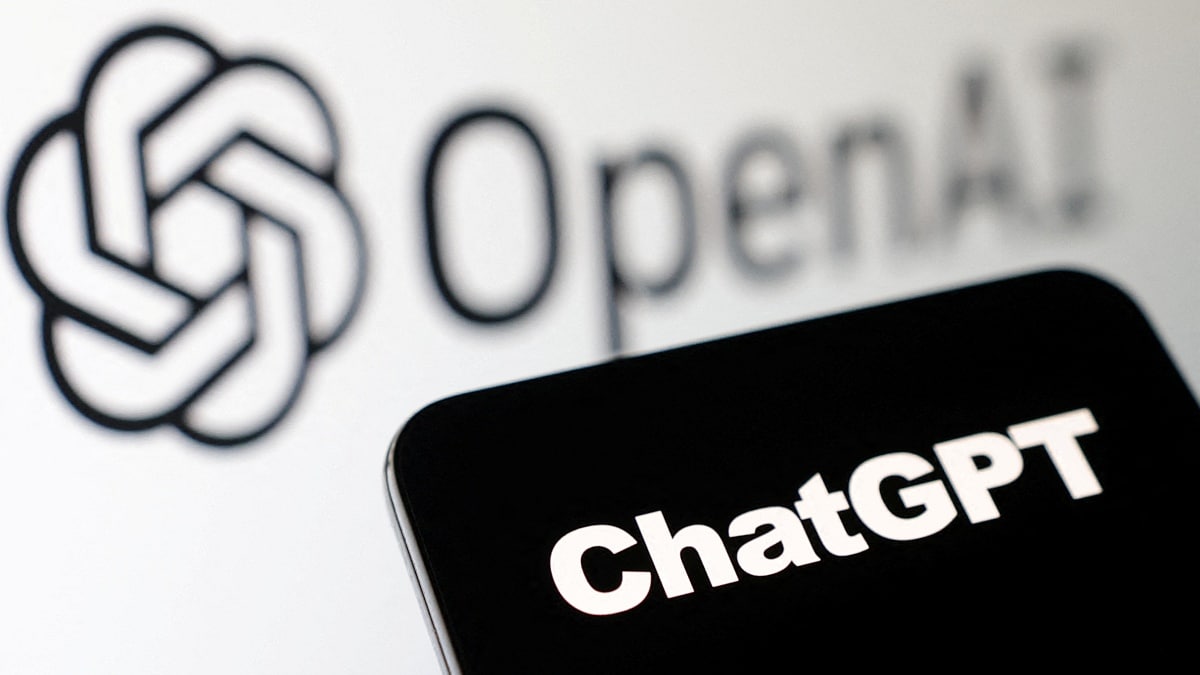Apple Prevents The Upgrade Of Email Software That Uses ChatGPT Technology
According to Ben Volach, co-founder of BlueMail developer Blix Inc, Apple took action last week to delay an upgrade to the email software BlueMail due to worries that a new AI function in the app may display improper information.

Apple informed the app developer that it had postponed approval of an upgrade to an email app that used AI-powered language capabilities because of worries that it would produce offensive content for kids.
The software designer rejects Apple’s choice. The argument demonstrates the widespread skepticism regarding the suitability of language-generating artificial intelligence techniques such as ChatGPT.
According to Ben Volach, co-founder of BlueMail developer Blix Inc, Apple took action last week to delay an upgrade to the email software BlueMail due to worries that a new AI function in the app may display improper information.
BlueMail’s new AI functionality uses the newest ChatGPT chatbot from OpenAI to automate email composition utilizing the contents of previous emails and calendar events. ChatGPT enables people to have conversations with an AI that appears to be human-like and is capable of generating advanced long-form content on a range of subjects. “Your app incorporates AI-generated material but does not appear to feature content screening at this time,” Apple’s app-review team noted last week in a communication to the developer seen by the Journal.
According to the documents, the app review team recommended that BlueMail raise its minimum age requirement to 17 and older or implement content filtering since the app may create information that is not suitable for all audiences. It has content-filtering capabilities, according to Mr. Volach.
The age limit for using the app is presently set at 4 years old and up. For categories of applications that may include everything from foul language to sexual material and allusions to drugs, Apple sets an age limit of 17 years old.
Mr. Volach claims that this request is unreasonable and that Apple customers already have access to other applications with similar AI capabilities and no age limits. Mr. Volach claimed, “Apple is making it incredibly hard for us to offer innovation to our consumers.” Apple is looking into Blix’s complaint, according to a spokesperson, and developers can appeal a decision made by the App Review Board.
With the help of ChatGPT, an OpenAI chatbot, “generative” AI has become one of the most keenly studied emerging technologies in recent years. The technology has already sparked debate. With the launch of ChatGPT-powered Microsoft Corp.’s Bing search engine, early testers expressed worry over the chatbot’s replies, this included inaccurate information as well as ones that appeared irrational and enraged. The Bing update was defended by Microsoft, which has spent billions on OpenAI as a work-in-progress.
Apple’s attempt to impose an age limit to help regulate language-model-based AI material is a sign that the tech giant is carefully observing the new technology and the dangers it brings. The business has always maintained this in order to protect the privacy and security of its devices.
Recently, Microsoft upgraded the Bing smartphone app and added ChatGPT capability to the Apple App Store and Google Play Store. The 17-year-old and older age restriction that Apple is requesting for BlueMail also applies to Bing in the iPhone App Store, but there are no age limitations for Bing in the Google Play Store. Because the program may locate pornographic content, Bing on the App Store already has a 17 and up age restriction, according to a Microsoft spokesperson.
A week after submitting the software update for evaluation, BlueMail received Apple’s rejection. Until he received an answer, Mr. Volach said that Apple tested a new version of the enhanced software every day. According to Mr. Volach, BlueMail was able to update its Android BlueMail software on the Google Play app store without being asked to add age restrictions or other content screening.
According to Mr. Volach, Apple unfairly disparages BlueMail. A greater age restriction might prevent the program from being distributed to prospective new users because it contains content screening, the user stated. Mr. Volach said that many other programs advertised on Apple’s App Store as having a ChatGPT-like function do not have age limits.
In the past, Apple has occasionally found a problem with an app that prompts the firm to more generally impose a new regulation. According to Philip Shoemaker, a former senior director of Apple’s App Store review team who departed in 2016, initial inconsistencies in the application of App Store policies—especially new policies are not unusual. Each app is reviewed by hundreds of people, but “not everyone sees the same thing. Some people may overlook information because they browse applications more quickly than others. There might be several causes for the discrepancy.![]()
With the launch of the Siri voice assistant in 2011, Apple was a pioneer in popularizing AI technologies. Yet up to this point, Apple seems to have avoided the generative AI debate. According to internal documents seen by the Journal, talks at an internal AI conference for corporate workers last month were concentrated on topics including computer vision, healthcare, and privacy.
Tim Cook, the CEO of Apple, stated last month during the company’s quarterly earnings conference call that artificial intelligence (“AI”) “is a significant emphasis of ours,” citing examples of AI-enabled functions including crash prevention.
Mr. Volach and Apple have a turbulent past. The “Sign in with Apple” software feature, which Apple unveiled in 2019, enables users to sign into an app without disclosing personal information like their email. A comparable function was previously patented by Blix. The BlueMail software was taken off the Mac App Store shortly after Apple unveiled its sign-in functionality. Apple said at the time that security issues were the reason the BlueMail app was removed. According to Mr. Volach, there was never a security concern, and several months later, Apple decided to approve the software.
In response to the event, Blix sued Apple for antitrust violations in 2019. The company’s claim was rejected by a federal court, which claimed that Blix had failed to provide proof of Apple’s monopolistic strength and anticompetitive actions.
Blix has retained antitrust attorney Jonathan Kanter to represent it in its antitrust complaint against Apple.The U.S Justice Department’s antitrust division, which is now conducting its own antitrust probe of Apple, was led by Mr. Kanter until he was replaced in 2021.
edited and proofread by nikita sharma




